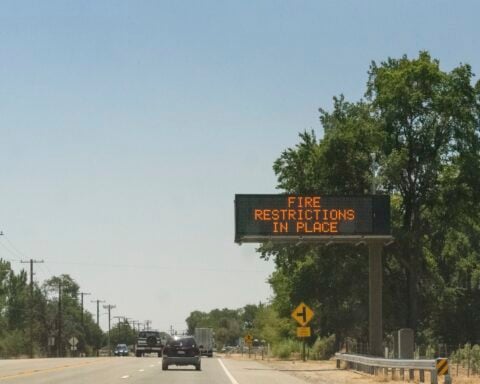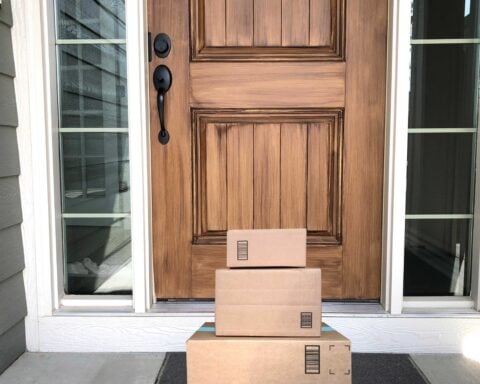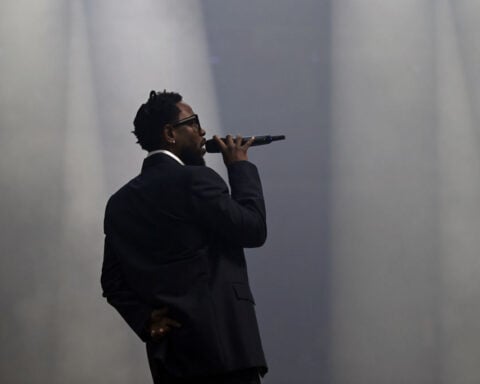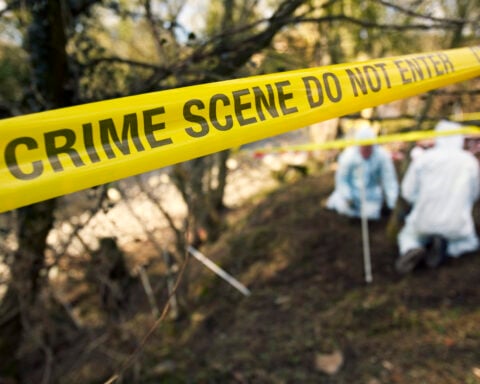By Andriy Perun and Anastasiia Malenko
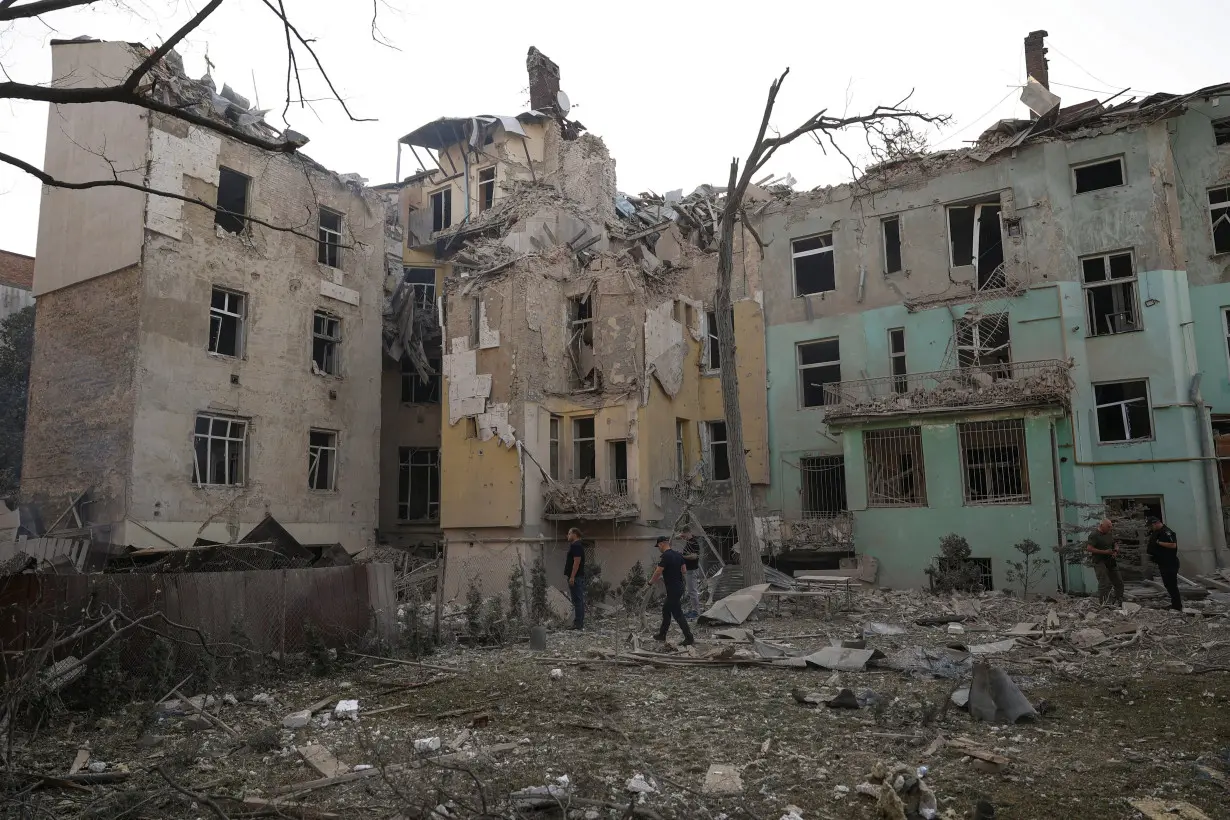
LVIV, Ukraine (Reuters) - A Russian drone and missile attack early on Wednesday killed seven people, including four members of the same family, in the western Ukrainian city of Lviv, local officials said.
The mayor of Lviv, which is close to the border with NATO member Poland, said one man, Yaroslav Bazylevych, lost his wife and three young daughters when their home was struck.
"In the centre of Europe, Russia is eliminating Ukrainians by (killing off) entire families. The Russians are killing our children, our future," mayor Andriy Sadovyi said via social media.
Bazylevych's daughters were seven, 18 and 21 years old, Sadovyi said. Earlier, the mayor said three children had been killed in Wednesday's attack.
Videos from the site showed emergency service workers carrying out bodies from a damaged residential building as one woman pleaded for information about her daughter and granddaughters.
A video posted by Ukraine's state emergency service showed rescuers carrying out what appeared to be the body of a girl from under the rubble.
The emergency services said 53 people, including seven children, had been injured in the Lviv attack.
Russia denies targeting civilians during its full-scale invasion of Ukraine which began more than 30 months ago, but says Ukrainian military, energy and transport infrastructure are legitimate military targets.
Thousands of Ukrainian civilians have been killed in the war.
Russian attacks hit energy facilities and other critical infrastructure in nine Ukrainian regions over the past 24 hours, Ukrainian officials said on Wednesday.
HYPERSONIC MISSILES
Wednesday's strikes, which also damaged historic buildings in the heart of Lviv, came a day after the war's deadliest single attack this year, when Russia hit a military institute in the central Ukrainian city of Poltava with two ballistic missiles, killing 50 and wounding hundreds more.
Russia's Defence Ministry said on Wednesday the "precision strike" in Poltava had targeted a Ukrainian armed forces' centre where foreign instructors trained communications, electronic warfare specialists and drone operators.
In Lviv, the ministry said it had used hypersonic Kinzhal missiles and drones to strike defence enterprises it said were tasked with making and repairing electronic components of aircraft and missile weapons of the Ukrainian armed forces.
Ukraine's air force said Russia launched two Kh-47 M2 Kinzhal missiles during the overnight attack using 13 missiles. Air defences shot down seven of them as well as 22 of 29 drones across the country during the latest attack, it said.
Ukrainian President Volodymyr Zelenskiy said allies could help stop the "terror" by providing more air defences, and again urged them to allow the use of long-range Western weapons deeper into Russian territory.
Moscow said on Wednesday it would deliver an "extremely painful" response in the event of long-range strikes on Russian territory by Ukraine.
Lviv mayor Sadovyi told national television that more than 156 structures, including schools, homes and clinics, had been damaged.
The region's governor Maksym Kozytskyi said the count included at least seven local architectural monuments - all buildings located in the city's historic area and UNESCO buffer zone, which aims to protect World Heritage property.
Russia also attacked the central city of Kryvyi Rih on Wednesday, injuring five people, including a 10-year-old child, and damaging a number of buildings, Dnipropetrovsk regional governor Serhiy Lysak said.
Russia has been pounding Ukraine with hundreds of missiles and drones in the past 10 days, in what some Russian military bloggers call Moscow's response to a recent incursion by Ukrainian forces into its territory that is continuing.
Poland scrambled aircraft on Wednesday for the third time in eight days to maintain the safety of its airspace, the Polish armed forces' operational command said. Lviv is only about 70 km (43 miles) from the Polish border.
(Reporting by Andriy Perun in Lviv and Valentyn Ogirenko, Gleb Garanich, Pavel Polityuk and Anastasiia Malenko in Kyiv; Writing by Lidia Kelly in Melbourne; Editing by Mike Collett-White and Gareth Jones)

 Isolated Chicago communities secure money for a coveted transit project before Trump takes office
Isolated Chicago communities secure money for a coveted transit project before Trump takes office
 Caitlin Clark effect hasn't reversed the decades-long decline in girls basketball participation
Caitlin Clark effect hasn't reversed the decades-long decline in girls basketball participation
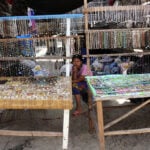 The water was their livelihood. Now Thailand's sea nomads work to preserve a vanishing way of life
The water was their livelihood. Now Thailand's sea nomads work to preserve a vanishing way of life
 China says US is 'playing with fire' after latest military aid for Taiwan
China says US is 'playing with fire' after latest military aid for Taiwan
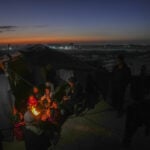 Winter is hitting Gaza and many Palestinians have little protection from the cold
Winter is hitting Gaza and many Palestinians have little protection from the cold
 China calls Taiwan a 'red line', criticises new US military aid to island
China calls Taiwan a 'red line', criticises new US military aid to island
 Trump says he might demand Panama hand over canal
Trump says he might demand Panama hand over canal
 China's Nio says new Firefly EV to go on sale in Europe in H1 2025
China's Nio says new Firefly EV to go on sale in Europe in H1 2025
 Howard throws 2 TD passes to Smith to help Ohio State rout Tennessee 42-17 in CFP
Howard throws 2 TD passes to Smith to help Ohio State rout Tennessee 42-17 in CFP
 JuJu Watkins and No. 7 USC hold off Paige Bueckers and fourth-ranked UConn 72-70
JuJu Watkins and No. 7 USC hold off Paige Bueckers and fourth-ranked UConn 72-70

